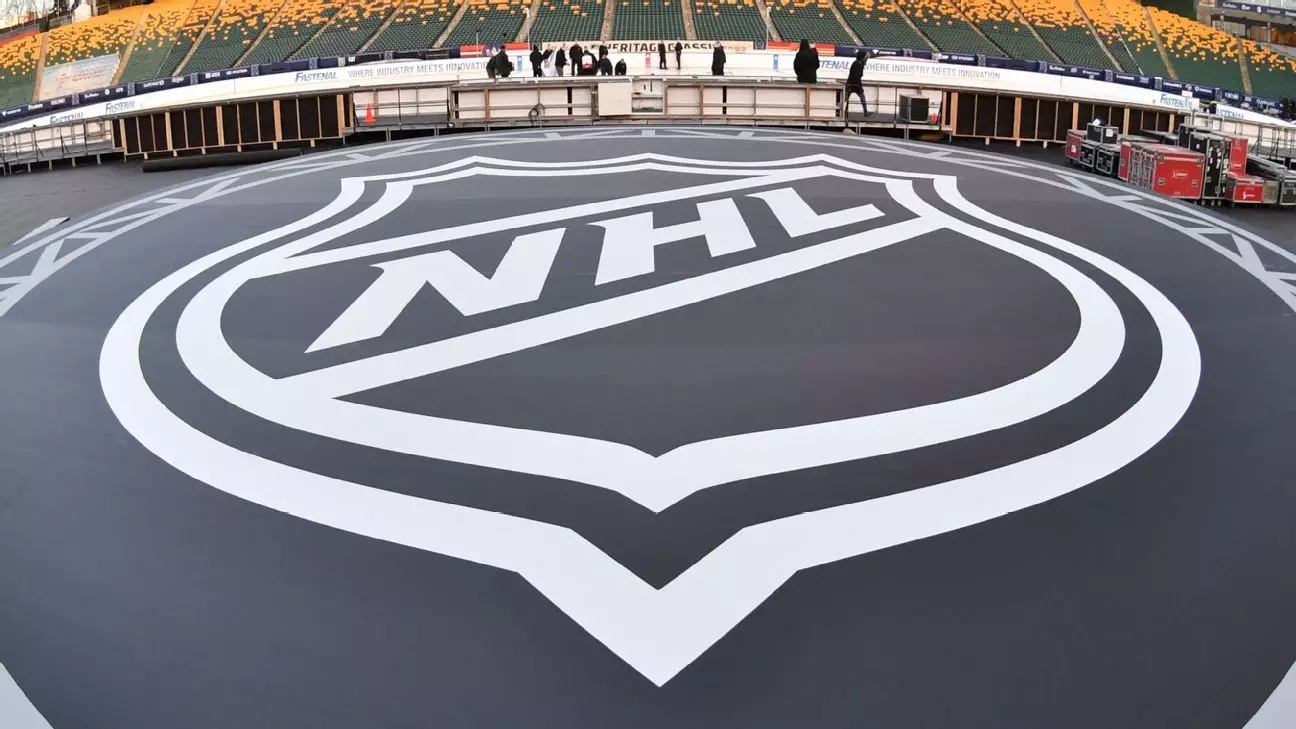In a significant development for professional hockey players, a recent agreement between the NHL Players’ Association (NHLPA) and Boston College is set to facilitate a smoother route for players seeking to earn their college degrees. This partnership will provide current and former NHL athletes with an opportunity to further their education by enrolling in the Woods College of Advancing Studies, a program designed for non-traditional students. For players like Marty Walsh, who previously led the NHLPA and served as a U.S. Secretary of Labor, this initiative represents a crucial step toward achieving academic goals that may have been sidelined due to the demands of a professional sports career.
Addressing Barriers to Education
The primary aim of the agreement is to reduce the barriers that have long hindered NHL players from completing their education. David Goodman, the dean of Woods College, emphasized that the new arrangements would streamline the process for players returning to school, particularly in terms of transferring previously earned college credits. This aspect is particularly significant considering that many athletes are often forced to leave college prematurely to pursue their dreams of playing in the NHL.
Furthermore, the flexible format offered by Woods College— which includes online, on-campus, and hybrid options—caters to the unique schedules of professional athletes, allowing them to balance both education and their demanding careers.
The agreement isn’t merely institutional; it is rooted in real-life experiences of players who have successfully navigated their educational journeys. Former players like Brooks Orpik serve as inspiring examples. After winning two Stanley Cup championships with the Pittsburgh Penguins and retiring, Orpik made a commitment to fulfill his promise to his family and his former coach, Jerry York, completing his degree in 2022. Such stories highlight the personal significance of earning a degree and the deeper pride associated with this accomplishment, which often feels different from athletic successes.
Similarly, recent college graduates like Josh Jooris, who balanced his education at Union College while entering the NHL, are encouraged by this partnership. His enrollment exemplifies the potential for current NHL athletes to take advantage of this agreement and finish what they started.
What this agreement underscores is the NHLPA’s commitment to the holistic well-being of its players. With statistics indicating that over a third of NHL players have played college hockey but many have left school before graduating, there’s an urgent need to prepare athletes for life beyond their playing careers. The reality is stark: most players retire in their 30s, leaving them with many years of life to navigate post-hockey.
As Walsh pointed out, the transition back to academia may not hold the same allure for successful athletes, but it is a necessary step for long-term stability. The NHLPA aims to ensure that its members not only thrive on the ice but are also equipped with the educational background necessary for success in subsequent endeavors.
The Role of Education in the Transition Process
Education provides a critical foundation for players transitioning out of their sports careers. The agreement with Boston College not only facilitates degree attainment but also emphasizes relevant skill development essential for various career paths. The NHLPA’s proactive stance reflects a broader understanding that successful athletes need an avenue to pursue knowledge in an era where second careers are becoming increasingly important.
Walsh’s personal experience, where he juggled various professional responsibilities alongside his education, serves as a reminder of the dedication required to balance both worlds. This commitment to educational achievement among NHL players symbolizes a shift toward recognizing the value of education in sports culture, where athletic prowess often overshadows academic pursuits.
The partnership between the NHLPA and Boston College heralds a new phase for players, offering them the chance to reclaim their educational aspirations. This initiative reflects a growing recognition of the importance of academic and career support for professional athletes. As these players embark on their educational journeys, the hope is that they will emerge not only as champions in their sport but also as educated individuals ready to take on the challenges of life beyond the rink. Through this agreement, both the NHLPA and Boston College are taking substantial steps toward shaping a promising future for hockey players in the realms of education and professional development.


Leave a Reply